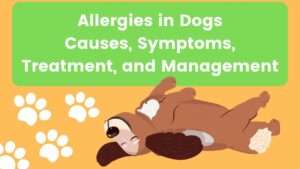Dogs are beloved members of our families, and ensuring their health and well-being is paramount. As we explore various dietary options for our furry friends, questions often arise about unconventional foods like mussels. Can dogs partake in this seafood delicacy? Let’s delve into the topic and uncover all the essential information regarding dogs and mussels.
Contents Overview
What is Mussels
Mussels are a type of shellfish found in both freshwater and saltwater environments. They have dark blue or black shells and soft, tender meat inside. Mussels are known for their rich flavor and are commonly used in various culinary dishes, such as soups, stews, and pastas. They are also prized for their nutritional value, providing protein, omega-3 fatty acids, vitamins, and minerals. Mussels are typically harvested and cultivated for human consumption but can also be enjoyed by some pets, with proper preparation and consideration of any potential risks.
Nutritional Value of Mussels
Mussels pack a nutritional punch, offering an array of health benefits. They are rich in protein, essential for muscle growth and repair, and contain omega-3 fatty acids, which promote heart health and contribute to shiny coats for pets. Additionally, mussels provide vitamins such as B12 and minerals like iron and zinc, supporting overall well-being. Their low calorie and fat content make them a nutritious choice for both humans and pets alike.
Can Dogs Eat Mussels Safely?
Yes, dogs can eat mussels safely, but it’s essential to proceed with caution. While mussels are rich in nutrients beneficial for dogs, including protein and omega-3 fatty acids, they also come with potential risks. Some dogs may be allergic to shellfish, leading to adverse reactions such as itching or gastrointestinal upset. Additionally, mussels can accumulate toxins or harmful bacteria, which may cause poisoning or digestive issues in dogs if not properly prepared or cooked. Therefore, if you choose to feed your dog mussels, ensure they are thoroughly cooked, and monitor for any signs of allergic reactions or adverse effects.
Potential Benefits of Mussels to Dogs
- Rich in Nutrients: Mussels are packed with essential nutrients that can support your dog’s overall health and well-being. Here are some key nutrients found in mussels:
- Omega-3 Fatty Acids: Mussels are an excellent source of omega-3 fatty acids, specifically EPA and DHA. These fatty acids play a vital role in reducing inflammation, promoting healthy skin and coat, and supporting cognitive function in dogs.
- Protein: Mussels are a protein-rich food, making them an excellent option for dogs that require a high-protein diet to support muscle development and repair.
- Vitamins and Minerals: Mussels contain a variety of vitamins and minerals, including vitamin B12, iron, zinc, and selenium, which are essential for various bodily functions in dogs.
- Joint Health: The omega-3 fatty acids found in mussels have been shown to have anti-inflammatory properties, which can help alleviate symptoms of arthritis and promote joint health in dogs, particularly in senior or active dogs.
- Healthy Skin and Coat: The omega-3 fatty acids in mussels can also contribute to a shiny, lustrous coat and healthy skin in dogs by reducing inflammation and supporting skin barrier function.
- Boosted Immunity: The vitamins and minerals present in mussels, such as vitamin B12, zinc, and selenium, play a crucial role in supporting a strong immune system in dogs, helping them fight off infections and diseases.
- Improved Digestive Health: Mussels contain natural enzymes that may aid in digestion and promote gastrointestinal health in dogs, potentially reducing the risk of digestive issues such as constipation or diarrhea.
Potential Risks of Feeding Mussels to Dogs
- Bacterial Contamination: Raw mussels can harbor harmful bacteria such as Salmonella, Escherichia coli (E. coli), and Vibrio vulnificus. Ingestion of these bacteria can lead to gastrointestinal upset, including vomiting, diarrhea, and in severe cases, bacterial infections.
- Choking Hazard: The shells of mussels pose a choking hazard to dogs, especially if not properly removed before feeding. Ingesting large pieces of shell can cause choking or lead to intestinal blockages, requiring surgical intervention.
- Allergic Reactions: Some dogs may be allergic to shellfish, including mussels. Allergic reactions can manifest as itching, hives, facial swelling, difficulty breathing, and in severe cases, anaphylaxis. It’s essential to monitor your dog closely for any signs of allergic reactions when introducing new foods into their diet.
- High Sodium Content: Mussels contain naturally-occurring sodium, which can be problematic for dogs with certain health conditions such as heart disease or hypertension. Excessive sodium intake can lead to electrolyte imbalances and exacerbate existing health issues.
- Parasitic Infections: While less common, mussels can sometimes harbor parasites such as roundworms or tapeworms. Ingestion of these parasites can lead to gastrointestinal disturbances and other health complications in dogs.
Precautions When Feeding Mussels to Dogs
- Cook Thoroughly: To eliminate the risk of bacterial contamination, always cook mussels thoroughly before feeding them to your dog. Cooking methods such as steaming, boiling, or baking can help kill harmful bacteria and make mussels safe for consumption.
- Remove Shells: Before serving mussels to your dog, ensure that all shells are completely removed to prevent choking hazards or intestinal blockages. Even small fragments of shell can pose a risk, so take care to remove them entirely.
- Feed in Moderation: While mussels can offer health benefits, they should be fed to dogs in moderation as part of a balanced diet. Excessive consumption of mussels can lead to digestive upset or nutritional imbalances, so it’s important to limit the amount given to your dog.
- Monitor for Allergic Reactions: When introducing mussels or any new food into your dog’s diet, monitor them closely for signs of allergic reactions. If your dog exhibits any symptoms of allergies, such as itching, swelling, or difficulty breathing, discontinue feeding mussels and consult your veterinarian.
- Consult with Veterinarian: Before introducing mussels or any new food into your dog’s diet, consult with your veterinarian, especially if your dog has any underlying health conditions or dietary restrictions. Your veterinarian can provide personalized guidance and recommendations based on your dog’s specific needs and health status.
Safe Ways to Feed Mussels to Dogs
Let’s explore some safe ways to feed mussels to your dog, ensuring their health and well-being are prioritized.
- Cooking Methods:
- Steaming: Steam mussels until the shells open, indicating they are cooked thoroughly. Steaming retains nutrients while eliminating harmful bacteria, making it a safe cooking method for dogs.
- Boiling: Boil mussels in water until they open, ensuring they are cooked through. This method is effective at killing bacteria and is simple to execute.
- Baking: Baking mussels in the oven until they open is another safe cooking method. This approach may impart a slightly different flavor but still ensures the mussels are fully cooked and safe for your dog to consume.
- Removing Shells:
- Complete Removal: After cooking, ensure all mussel shells are completely removed before feeding them to your dog. Even small shell fragments can pose a choking hazard or risk of intestinal blockage.
- Thorough Inspection: Take care to inspect each mussel carefully to ensure no shell remnants remain. Running your fingers along the cooked mussels can help detect any hidden shells.
- Serving Precautions:
- Cooling: Allow cooked mussels to cool to a safe temperature before serving them to your dog. Hot food can burn your dog’s mouth or throat, leading to discomfort or injury.
- Cutting into Bite-Sized Pieces: For smaller dogs or those prone to gulping, consider cutting cooked mussels into smaller, bite-sized pieces. This minimizes the risk of choking and makes it easier for your dog to consume.
- Moderation:
- Portion Control: While mussels offer numerous health benefits, they should be fed to your dog in moderation as part of a balanced diet. Excessive consumption can lead to digestive upset or nutritional imbalances.
- Frequency: Limit the frequency of feeding mussels to your dog to avoid overindulgence. Integrate mussels into your dog’s diet as an occasional treat rather than a staple food source.
- Consultation with Veterinarian:
- Individualized Advice: Before introducing mussels or any new food into your dog’s diet, consult with your veterinarian. They can provide personalized guidance based on your dog’s specific health needs, dietary requirements, and any potential allergies or sensitivities.
- Monitoring: After introducing mussels into your dog’s diet, monitor them closely for any adverse reactions or changes in behavior. If you notice any signs of discomfort or illness, discontinue feeding mussels and seek veterinary advice.
When to Avoid Mussels to Dog
- Allergic Reactions: If your dog has a known allergy to shellfish or has shown signs of allergic reactions in the past, avoid feeding them mussels.
- Underlying Health Conditions: Dogs with certain health conditions, such as pancreatitis, gastrointestinal issues, or kidney disease, may not tolerate mussels well. Consult with your veterinarian before introducing mussels into their diet.
- Medication Interactions: Some medications that your dog may be taking could interact negatively with components found in mussels. Check with your veterinarian to ensure there are no contraindications.
- Sensitivity to Shellfish: Even if your dog has not shown signs of allergy, some dogs may have an underlying sensitivity to shellfish. Monitor your dog closely for any adverse reactions when introducing mussels.
- Raw Consumption: Raw mussels can harbor harmful bacteria and parasites, posing a risk of gastrointestinal upset or infections. Always ensure mussels are thoroughly cooked before feeding them to your dog.
Safe and Suitable Alternatives of Mussels for Dogs
If you’re looking for safe and suitable alternatives to mussels for your dog, there are plenty of options to consider. Cooked fish such as salmon, tuna, or sardines can provide similar benefits of omega-3 fatty acids without the risk of shellfish allergies. Additionally, lean meats like chicken, turkey, or beef offer protein-rich alternatives that are gentle on your dog’s stomach. Vegetables such as carrots, green beans, or sweet potatoes can serve as healthy, crunchy snacks packed with vitamins and minerals. Always remember to consult with your veterinarian before introducing new foods into your dog’s diet to ensure they are safe and appropriate for your furry friend.
Bottom Line
In conclusion, mussels can be a nutritious and delicious addition to your dog’s diet when prepared and served safely. From supporting joint health and a shiny coat to boosting immunity and aiding digestion, the benefits of mussels for dogs are plentiful. However, it’s essential to exercise caution, ensure proper preparation, and feed them in moderation. With the guidance of your veterinarian, you can provide your canine companion with the occasional treat of mussels, enriching their diet and enhancing their overall well-being.



































+ There are no comments
Add yours